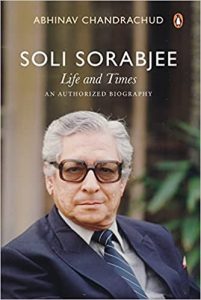“Where can you find a man like him? Study what he wrote, and learn from his teachings, for if you do, you will gain immense strength. Take advantage of the fountain of wisdom, of Spirit, and of fire that flowed through Vivekananda!” said Jawaharlal Nehru, of a man who continues to be much-revered.
It was a time of unspeakable strife when the nation was groveling into the abyss of agonizing thralldom. This was also a time when torchbearers of light and liberty transcending the confines of time and space ushered in succor for the tormented hearts who were going through the indignity of British colonialism. These stalwarts came from every corner of the country and other than freeing the nation of this bruise of slavery, they left an indelible legacy to which the forthcoming generations can fall back every time they lose themselves into the dreary path of mammoth desolation of desperation and illusory forgetfulness of natural joyfulness. In the galaxy of such luminous persona, Swami Vivekanda’s presence is felt with deep reverence that contributed majorly in the initial days of providing a national identity to the country lost from within and battered from outside.

The great national leader Subhash Chandra Bose said “Swamiji harmonized the East and the West, religion and science, past and present. And that is why he is great. Our countrymen have gained unprecedented self-respect, self-reliance and self-assertion from his teachings”.
The life and teachings of Swami Vivekananda, in all its multifarious hues provides this all-encompassing solution be it the malady of an individual’s life or of a society rife with complex problems. Will Durant, the great American historian and author of the famous book ‘The Story of Philosophy’ avowed, “He (Swamiji) preached to his countrymen a more virile creed than any Hindu had offered them since Vedic Days. He redefined God as ‘the totality of all souls’ and called upon his fellow-men to practice religion not through vain asceticism and meditation, but through absolute devotion to mankind.”
The organization, viz. Ramakrishna Mission, which he founded in 1897, was primarily based on this ideal of “Shiva Jnane, Jeeva Sewa” which means “Service to God through service to mankind”. This coupled with the need of upholding the essential trends of Vedantic culture and to create and sustain a band of selfless people who lay down their lives in tune with Upanishadic dictum, “Atmano Mokshartha Bahujan Hitaycha”, Vivekananda started Ramakrishna Mission in various parts of the country. The organisation has passed a century and over two decades. It has made its mark in creating spiritual giants who have been providing yeomen service in the field of education, relief and medical services, youth mobilisation, vocational training for the underprivileged section, disaster management activities alongside their sustained spiritual practices. It has also spread its wings across the globe.
The well-known Home of service of Varanasi, which gained its ground with the contributions made by a few young monks inspired by the teachings of Swami Vivekananda is a case in point. It has a rich history in the context of the socio-cultural backdrop of our country. In its initial days, they not only rendered service to the ailing monks but also extended it to the untouchables and the so-called outcastes. This led to the monks being castigated as ‘Untouchables’ or ‘Bhangi Sadhus’ which only changed with the intervention of the senior-most Swami Mandaleswar Dhanraj Giri who advocated that their service is in sync with the ultimate Vedantic teaching ‘All is Brahman’ i.e., All is one with Divine.


The Government of India, in the year 1987 declared Swami Vivekananda as the National Youth icon. Needless to say, that the decision has been arrived at after comprehending the vast expanse of the intellectual and spiritual possibilities that his life promises to offer.
Narendra Nath Dutta as he was known in his pre-monastic life was born in a highly cultured and educated Dutta family and bore a legacy of sharp wit from his barrister father and was an heir to a grandfather who renounced family life for austere spiritual practices. Naren exhibited a great promise of a bright future and was a sensitive child whose life was a blend of effortless spiritual sagacity and prodigious intellectual riches. It is oft repeated a fact of his life wherein he entered the coterie of his Master Sri Ramakrishna Paramhansa’s life by putting his Master’s acclaimed spiritual attainments into the caustic experimentation with rigours of reason. In the light of Indian tradition, Naren held fast to the true tenet of a philosopher who is regarded as a philosopher only if he or she has seen Truth. His intense spiritual restlessness finally found its answers when with his Master’s grace, he realised the highest spiritual truth in the innermost recesses of his heart.
Very soon, in line with his Master’s wish, he preached the sublime truths of Eastern culture to the western world standing at the crossroads of cultural transmutation. Exhibiting a remarkable trend of adaptation and suiting himself to the requirements of western worlds, he held the most centric-peripheral analysis of India and its variegated culture and the daunting challenge was to bring to the world a sense of refined Indian cultural and historical tradition which had long lost its sheen in the face of distorted propaganda by some western scholar, and also India’s own amnesia of its past glory.
A few things are also worth noting here. On May 31, 1893 sailing from Yokohama to Vancouver, Swami Vivekananda met Jamsetji Tata. It is reported that they discussed Japan’s phenomenal progress in technology and Jamsetji’s plan of laying the foundations of the steel industry to India. The founder of one of India’s largest conglomerates, Jamsetji expressed his keenness to make India a strong industrial nation. Endorsing his vision, Vivekananda exclaimed that the real hope of India’s prosperity lay in the prosperity and progress of its ordinary millions. They discussed various aspects of self-sufficiency and rural employments which is at the core of socio-economic backwardness of India. Later, in a letter, in 1898, Tata requested Vivekananda to Chair research Institute of Sciences which Vivekananda politely declined as he was busy setting up the Ramakrishna Mission. Nonetheless, Vivekananda promptly sent his disciple, Sister Nivedita, and they formulated a detailed plan for the research institute. The Tata Institute of Science was born in 1909 and renamed the Indian Institute of Science (IISC) in 1911. This also insinuates at Vivekananda’s expanse of knowledge that despite the formal education in Arts, Vivekananda was invited to Chair an Institute of Science, and it is noteworthy to see that Tata could gauge this.

Many western scholars were enamoured by his gigantic intellectual capacity and spiritual prowess marvelled at his genius, and Mr. J. H. Wright, Professor of Greek, Harvard wrote to the Chairman of the Committee for the Selection of the Delegates at the Chicago Parliament of Religion, who happened to be his friend: “Here is a man who is more learned than all our professors put together”. The phenomenal success of Vivekananda’s Chicago speech is well-known which has left its indelible mark in the global cultural landscape.
His meeting with Nikola Tesla also deserves mention. Tesla was an inventor and futurist whose contributions to the electrical revolution metamorphosed the daily life towards the turn of 20th century. As Subhash Kak of the School of Electrical and Computer Engineering, Oklahoma State University writes that Tesla was a pioneer of AC electricity, induction motor, and X-rays, and contributed to the development of radio and television. As a futurist, Tesla visualized robots, which he called tele automatons, flying machines that used ambient energy and systems that exploited solar energy. He met Swami Vivekananda whom in 1896 at a party organized by the actress Sarah Bernhardt. Vivekananda had knowledge of Indian physics. As Vivekananda writes in a letter in 1896, “Mr. Tesla was charmed to hear about the Vedantic prana and akasha and the kalpas. He thinks he can demonstrate mathematically that force and matter are reducible to potential energy.…In that case Vedantic cosmology will be placed on the surest of foundation.” However, it did not succeed, though the equation E=mc2, was published a few years later, and Tesla wrote on future possibilities related to wireless energy transmission that went beyond standard physics of the day. The reference to Vaisheshika school of thoughts is worth mentioning here.
However, Vivekananda’s love for nation and its people kept him anxious. All these found an exquisite and powerful expression in his voluminous writings spread over nine volumes, creating a style of his own. His preaching coalesced with the genuineness and charisma of his persona, immensely inspired people from western world to understand east from beyond the lens of a skewed notion. These writings in form of letters, essays, poems, interviews and transcription of his speeches contributed deeply to uphold hitherto uncharted terrain of the Indian world and left a vast reservoir of representation of objective analysis of Indian cultural traditions. Needless to say, that while extolling India’s glorious possibilities of contribution did not deter him from highlighting and working against various evil practices within Indian society, be it abominable caste system, superstition, deplorable conditions of large masses of women and dispossessed. His emphasis echoing from the depth of Self-realisation gets aptly expressed when he says, “The mind brings before us all our delusions–body, sex, creed, caste, bondage; so, we have to tell the truth to the mind incessantly, until it is made to realise it. Our real nature is all bliss, and all the pleasure we know is but a reflection, an atom, of that bliss we get from touching our real nature.” The vantage point of the realisation of supreme self within as a spark of the divine in all, according to Vivekananda, remove unspeakable misery from the bosom of the earth.
Notwithstanding the sublime spiritual thoughts, Vivekananda was mindful of despicable conditions of India. After his speech in parliament of Religion, it was rather accepted that India does not require religion. He exhorted his western admirers to help poverty-stricken mass of India. He would say to some of his disciples that if they wished to do anything for him, ‘love India’. His utterance of the word ‘India’, they said, would send shock, and had inspired many of his western disciples to lay down their lives for the cause of India.


It was the last decade of the nineteenth century when his tireless strivings to draw the attention of the worlds to the best of the hemispheres, secured an esteemed stature for India in the eyes of the world. He endeavoured to do so by pointing at the scope of striking a fine balance between material growth of west to the inner riches of east. This visionary attempt to offer a remedy to the world which had seen two devastating world wars and numerous individual and social discrepancies calls for the revisiting the greatness of his persona.
The great statesman and first Governor General of India C. Rajagopalachari said, “Swami Vivekananda saved Hinduism and saved India. But for him we would have lost our religion and would not have gained our freedom. We therefore owe everything to him. May his faith, his courage and his wisdom ever inspire us so that we may keep safe the treasure we have received from him.”
Swami Vivekananda came at a period when our country was gearing up for transformation in all the spheres. His teachings emboldened a nation which was scrambling for an identity and gave directions to countless masses of the past and continues to do so.
Over a century and a half has passed by, and Vivekananda’s messages have travelled far and wide and created their own space in the global socio-cultural milieu. The former American President Barack Obama rightly articulated “It’s the richness of faiths celebrated by a visitor to my hometown of Chicago more than a century ago – the renowned Swami Vivekananda.”
In the true sense of Indian Philosophical ethos, much as a universal man, he embodied what India stands for, and endeavoured to bring the vitals of east and west, thereby earning a distinct stature of a Prophet.




